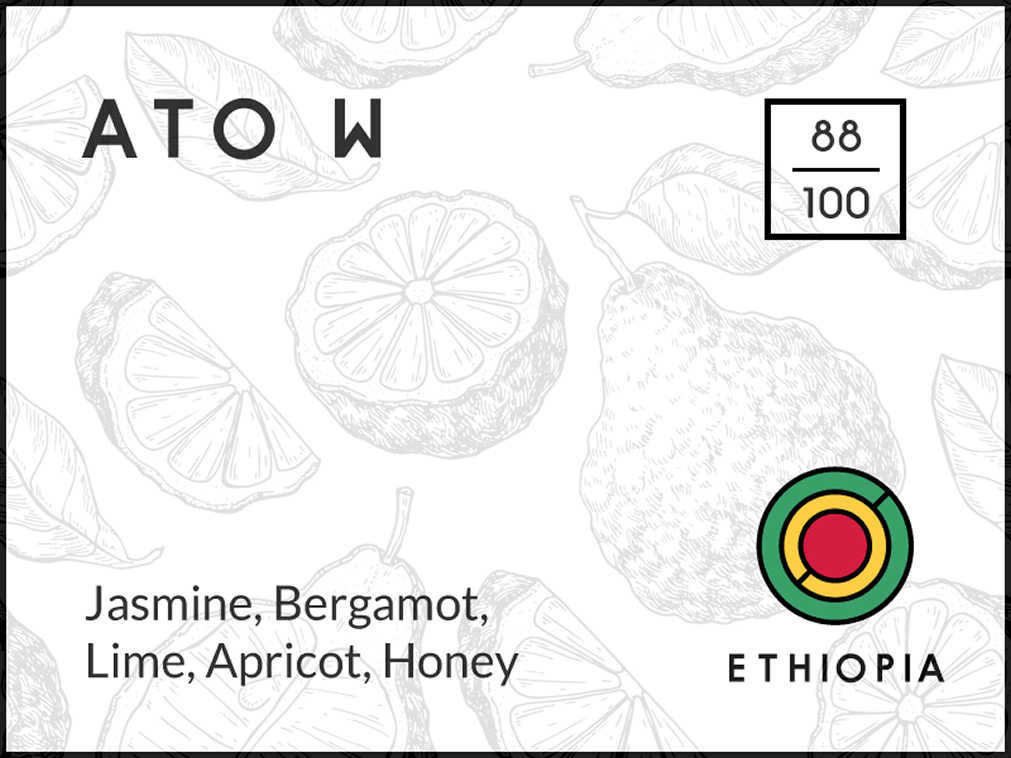He’s back – back again. For 2018.
Our blockbuster coffee from last year is back with a vengeance, perhaps even besting last year’s crop!
Named after its farmer
This coffee is from a privately owned farm in Guji — easily our favourite coffee growing region in Ethiopia for its trademark florals thanks to the almost mythical terroir.
Ato Esmael and his family have owned the Kayon Mountain farm since 2012 where they planted Heirloom varietal coffee trees on the 240 hectare plot, in the midst of a natural forest high up in the mountains between 1900-2100 metres above sea level.
The washed variant of last year’s hit
Last year we had the natural version of this coffee which went down a storm. Whilst we wait for the 2018 return of last year’s hero, here we present the washed process version of the same coffee from the Kayon Mountain Farm.
As usual with washed process Ethiopian coffees, expect bags of clarity yet still bursting with fruity flavour. It’s brilliant in a completely different way.
Can you taste it?
Bergamot is the key and most desirable tasting note here. Expect a tea-like lightness with Jasmine florals on the nose. Citric acidity is well-balanced and not overpowering. Finally, this coffee is rounded off with a sweet and smooth honey finish.
Our recommendation
African coffees are known for their brightness and extremely fruity nature, so they are usually preferred in filter or as long black for espresso based drinks. Due to the delicate floral qualities, we recommend trying this one black so that these are preserved, but of course, there are still many who prefer this type of coffee in milk etc, so to each their own!
Ethiopian coffees are screaming to be consumed via filter though and our recommendation is to try this using the V60 without any stirring to avoid muddling the flavours, and particularly to avoid losing the florals. Slow, even, spiral pours throughout.
We recommend consuming this coffee between weeks 2 to 4 after its roast date, but of course, try it before or after too.







